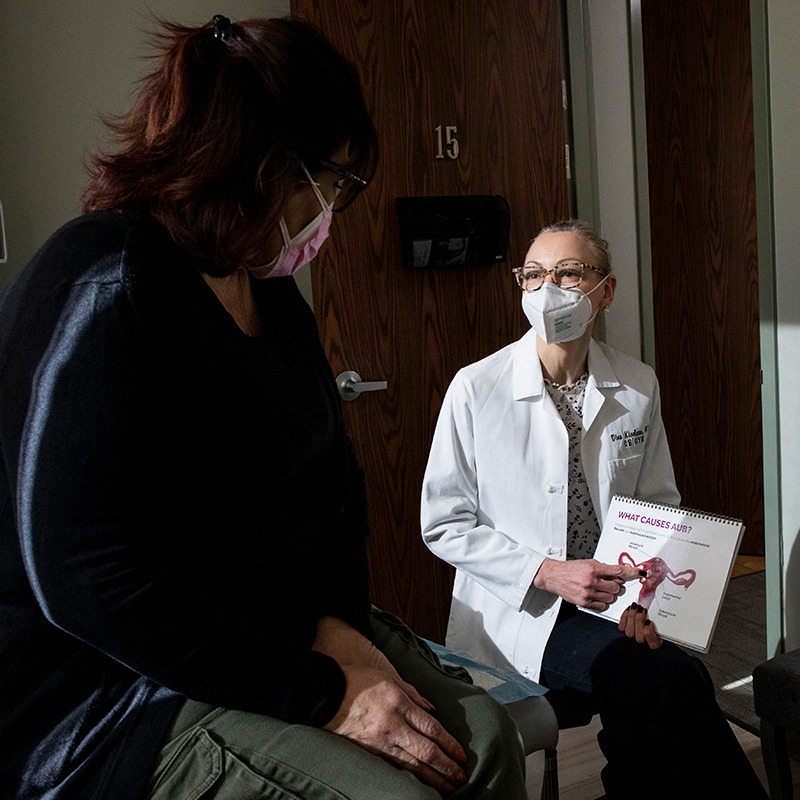Pelvic Exam

Overview
What is a Pelvic Exam?
A pelvic exam is when your doctor checks your vulva, vagina, cervix, ovaries, uterus, rectum and pelvis for signs of illness or abnormalities, including:
- An external visual exam to check for irritation, sores, swelling and redness.
- An internal exam using a speculum to spread the vaginal walls to see your vagina and cervix clearly.
- A physical exam when your doctor inserts two lubricated fingers into your vagina while palpating your abdomen and pelvis. This allows your doctor to check the size and shape of your ovaries and cervix as well as check for tender areas or abnormalities.
A pelvic exam is an opportunity to discuss any concerns you may have about your sexual health and wellness.
Why
Why is a Pelvic Exam Done?
A pelvic exam is often part of a routine physical exam to help diagnose medical conditions. Your doctor will look for signs of ovarian cysts, uterine fibroids, cancer or sexually transmitted infections. A pelvic exam is also recommended if you’re experiencing pelvic pain, unusual vaginal bleeding or discharge, or urinary problems. Your doctor will also perform pelvic exams when you’re pregnant.

Risks
Pelvic Exam Risks and Complications
There are no risks to a pelvic exam, and you should have no pain, but may feel slight discomfort during the exam.
Prep
Preparing for a Pelvic Exam
Your doctor will probably recommend the following preparations at least 48 hours before the procedure, especially if a Pap test is done during the exam:
- Schedule the procedure when you’re not having your period.
- Don’t have intercourse.
- Don’t use vaginal medicines, creams or jellies.
- Don’t insert tampons into your vagina.
- Don’t douche.

What to Expect
What to Expect During a Pelvic Exam
During a typical pelvic exam you will be asked to lie on your back and place your feet in the stirrups. A speculum will be gently inserted in your vagina and opened. The doctor will then examine you and the speculum removed. A rectal exam may also be done by inserting a gloved finger into the rectum to feel for any abnormalities.
Your doctor will discuss the results and recommend other tests if appropriate. You can then return to your normal activities without restrictions after your pelvic exam.
Specialists
















